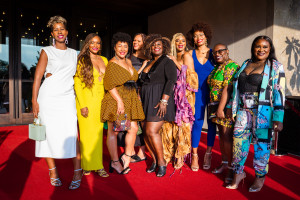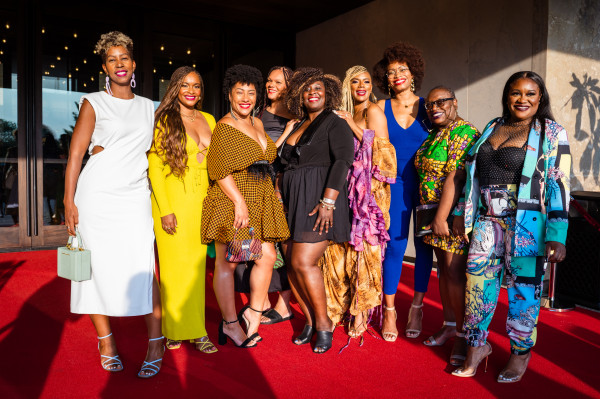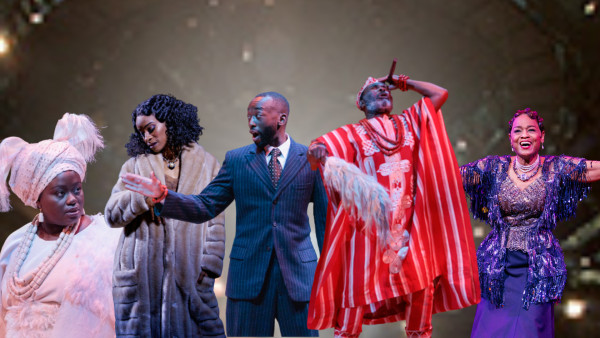Black people in Canada didn’t have access to theatre until we built a foundation for ourselves in Vancouver, Ontario and Halifax during the early 19th century. In 1942, the Montreal’s Negro Theatre Guild became a crucial cornerstone. And some years later, in 1968, Canada’s longest-running theatre, the Black Theatre Workshop (BTW), came to fruition, and many phenomenal Black theatre houses were born thereafter.
Right now, outside of culturally mandated theatre houses, Black productions and programming are still in the minority. However, we are flourishing and redesigning the blueprint. We’re at a time where we’re seeing stellar programming being developed from those same predominantly white-led spaces.
But what happens when there’s pushback, when people don’t find change appealing?
Difficult Questions Bring Promising Outcomes
Two buzzwords that have been used interchangeably for the past few years have been diversity and inclusivity.
The end goal is to incorporate more diverse pieces into programming at repertoires and theatre houses across Canada. Black leaders and those in the diversity, equity and inclusion (DEI) theatre spaces long for the same thing: to make Black productions more prominent so we can be the norm rather than the exception. But, it’s not that easy.
The constant struggle is steeped in colonialism and prejudice. The same theatre houses laying new pathways for Black playwrights are the same ones that may have patrons who actually don’t want to see new work from BIPOC artists or who don’t want their Shakespeare to be ‘reimagined.’
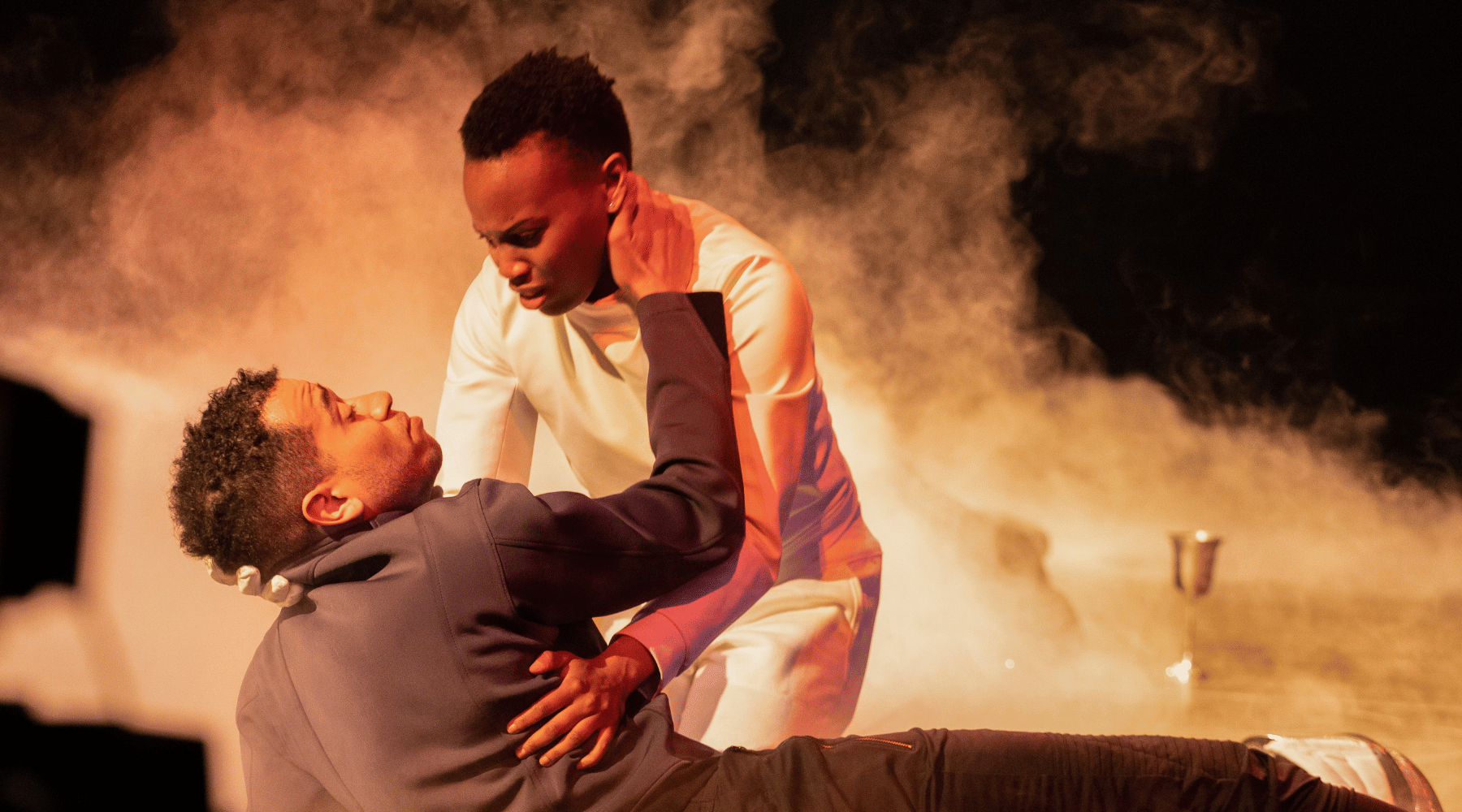
From left- Austin Eckert and Amaka Umeh in Hamlet. Photo by Jordy Clarke.
Mike Payette, Artistic Director for Tarragon Theatre, is no stranger to leading in white-led institutions.
“This is the hard part. The question of ‘this is not for us’ or ‘the programming is not for me’—people have this thought that when they see Black stories, they immediately create an unconscious distance from the human experience assuming because of the specificity of a Black community story, that there’s no possible bridge to who they are, which is a training thing. That’s a human skill that needs to be learned and constantly fed.”
He adds, “If I’m going to see some of the stories that have been around on stages for decades, I’m not going to say this is not for me or about me. I’m seeing a play, a story, I’m seeing art—that’s what I’m seeing. The default has always been acceptance of that world, so why can’t it work in the other way? Why can’t it be reversed? And I think that’s still taking time. We haven’t swung the pendulum completely.”
The Stratford Festival is rooted in Shakespearean prose and is a long-standing, white-led repertoire in Canada. It has actively and noticeably been transforming, including a broader direction in its programming. Daviorr Snipes, Director of Equity, Diversity and Inclusion for the Stratford Festival Theatre, has come up against the retort of those who felt last year’s presentation of Death And The Kings Horseman was out of context for the festival. It’s a beloved Yoruban play with an almost all-Black cast.
“I’ve responded to emails with people asking, ‘Hey, I see this focus, what’s the festival’s intention? What are you trying to do?’ Honestly, I’m thankful for those questions because I want there to be a dialogue. I would say that I’ve had more good-faith conversations about these subjects than not. The thing about there being a majority white audience for the decades it has been in the arts, in general, is that people get used to seeing what they see. When something comes out that’s different because of political sentiments or whatever the heat of the moment is, it will be seen as the festival trying to be woke or doing something performative. But the truth is, these are the things you have to do as an arts organization, having diverse programming to cater to the myriad of communities you need to connect to.”
“To be honest, there will be audience members you will lose when you diversify your programming. Some will say, ‘I don’t like that you cast a Black woman as Hamlet. I don’t think this is the theatre for me anymore.’ We can expect that. But what we hope to do is for those folks that leave, we’re able to replace them with new audience members that will connect to that. That’s how we have that balance. They have to understand that if they don’t want to be a part of this journey where we’re bringing in more people to our theatre, then we can’t design our theatre for those who don’t want to be a part of that,” says Snipes.
Canadian Stage is a historically-led white space shifting its programming to reflect the city’s diversity better. They, too, have noticeably been including programming of Black productions received with warm reception. Because of this, they’ve seen a new set of audiences attend Canadian Stage shows.
{https://www.instagram.com/p/Cyr2pbIMOZT/?hl=en}
Speaking with Candian Stage’s Artistic Director Brendan Healy and Associate Artistic Director Jordan Laffrenier presented two perspectives of the same mind. Laffrenier states that he hasn’t had any pushback from members or attendees. Nonetheless, he does have a word for the naysayers. “I would say that diverse programming is extremely important. As theatre artists, we’re constantly considering who we’re telling stories to. We want to tell stories to people who wish to experience a broad audience and an audience that wants to experience a wide range of stories. We get to all come together in the same space, but we also get to experience stories outside of our own,” says Laffrenier.
Collectively Getting Over The Hurdles
The two words repeated in every interview I conducted were community and access. They both tie into each other as the driving forces behind inclusivity and diversity. The Black community is up against more than a few barriers when it comes to attending the theatre. While theatre is for everyone, not everyone can attend. It’s about inclusion and reaching out to the community via the many access programs and avenues available—without the noise of deterring voices.
This is why we celebrate with Black Out Nights (which a few theatres have criticism for), pay-what-you-can soireés, rush tickets etc.
“[At Canadian Stage] We have many access programs. The younger audiences tend to gravitate to these programs and make use of it,” says Healy. “The dream is to have an audience diverse in terms of identities, but also intergenerational. It’s really rich when that can happen. There are so few opportunities in our society where multiple generations sit in space in community. So we’re really trying to encourage that.”
“At Stratford, we are holding true to what theatre is supposed to be, which is about building community. The involvement of community partners is incredibly special to me. I think it’s the heart of the work. If I’m trying to get people of colour or young people to the theatre, it’s not just about what we’re doing here at the festival. It has to be when I come to the city of Stratford, I feel comfortable there too,” says Snipes.
Ask any Black leader in white-led theatre spaces, and they will tell you that the work can be exhausting and draining. The barriers are still at play, and the fight continues on any given day. However, the shift of culture in these institutions enables us to see full representations of ourselves in plays, on stage, behind the curtain and behind the scenes in administration. The need for leaders like Mike Payette, Daviorr Snipes, Jordan Laffrenier, and many more who work in the number of theatre companies across Canada is not only necessary for creative purposes and representation but also to lay the foundation for those on the rise behind them. As Payette says, “Theatre and art are about human engagement.”
Healy shared his why with me during our conversation, and I think it represents a sliver of any passionate theatre company enthusiast’s ‘why’—regardless of race: “The theatre is a space for us to exercise our empathy. That’s why I come to the theatre—to make my heart bigger and expand my mind. I want to encourage people to see the theatre as a place to grow and to understand experiences that may not be your own. Also, to understand that despite our differences, there are similarities. That’s the beautiful thing about art is that it brings people together. That’s why I do what I do.”
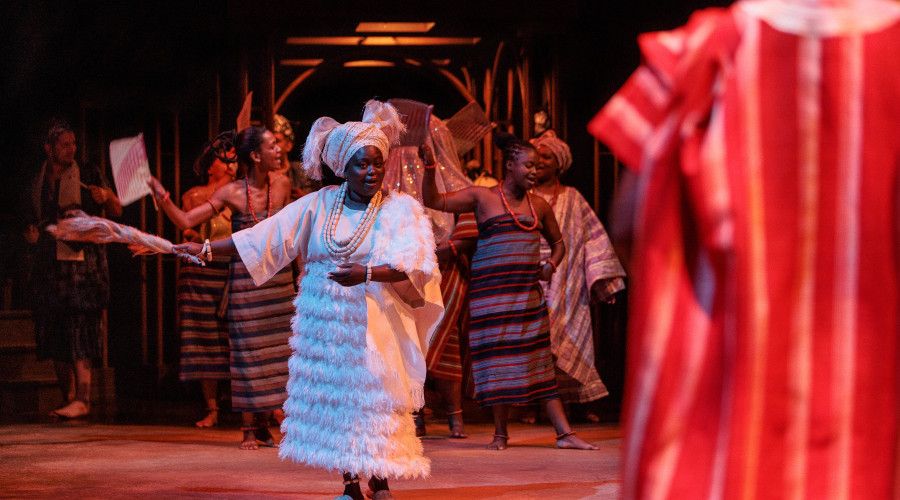
 By
By 

